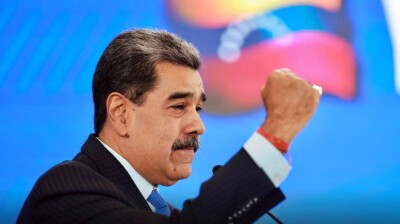Tens of thousands of Brazilians demonstrated across the country on September 21 in opposition to congressional moves that could shield lawmakers from prosecution and grant amnesty to far-right former president Jair Bolsonaro, who was recently sentenced to 27 years in prison for attempting to stage a coup.
The protests, which took place in all 26 states and the federal district, represent the largest left-wing mobilisation since President Luiz Inácio Lula da Silva's electoral victory in 2022, according to researchers who estimated crowd sizes using drone photography.
In São Paulo, Brazil's economic heartland, approximately 42,400 people gathered on Paulista Avenue, whilst 41,800 protesters assembled in Rio de Janeiro. Demonstrators also converged on the capital Brasília, where crowds chanted "No amnesty!" outside the seat of government.
The unrest follows parliament's approval last week of the so-called "Shielding Bill" - a constitutional amendment requiring lawmakers to vote by secret ballot before one of their colleagues can be criminally charged or arrested. The measure has been branded the "Banditry Law" by critics who accuse Congress of prioritising self-preservation over pressing social and economic concerns.
Parliament compounded public anger by fast-tracking an amnesty bill on September 17 that could absolve those convicted over the far-right mob's assault on government buildings during Bolsonaro's attempted coup.
A majority of Supreme Court justices on September 11 ruled that Bolsonaro and seven co-defendants had conspired to retain power after his 2022 electoral defeat to Lula. The court found that, although the coup attempt failed due to insufficient military support, it culminated in the January 8, 2023 storming of Congress, the Supreme Court, and the presidential palace by thousands of Bolsonaro supporters. Over 1,500 people were arrested, with many receiving lengthy sentences. Bolsonaro's Liberal Party has since advocated for amnesty covering both the convicted rioters and the former president.
The legislative manoeuvres have drawn fierce criticism from Brazilian cultural icons. Music legends Caetano Veloso, Gilberto Gil and Chico Buarque - who defied censorship during the military dictatorship of the 1960s - reunited for a protest concert on Rio's Copacabana beach.
"I was outraged by the news that many deputies voted in favour of a shielding law for themselves and their colleagues," Veloso told UOL. "This, along with a proposal for amnesty for the coup plotters. I think I identified with the majority of the Brazilian population, who do not want these things to go through."
According to AFP, House Speaker Hugo Motta of the centre-right Republicanos party defended parliament's efforts as necessary protection against judicial overreach. However, several deputies have since apologised on social media for supporting what they termed the "Banditry Law," saying they faced pressure to vote in favour.
The demonstrations gained momentum through social media mobilisation, with engagement in public WhatsApp groups surrounding the anti-amnesty protests surpassing that recorded during pro-Bolsonaro rallies on September 7. Messages calling for protests circulated rapidly over the weekend, fuelled by widespread publicity for the Rio concert.
"Right-wing mobilisations have typically been three times larger than those of the left," Pablo Ortellado, director of the University of São Paulo's Monitor of Political Debate, told AP. "In recent months, that pattern has changed. The opposition's support for [US President Donald] Trump's tariffs and for the amendment has brought the left back to the streets."
The protests come as Brazil remains deeply divided over Bolsonaro's fate. A Datafolha poll released on September 16 showed 50% of respondents believed the former president should be imprisoned, whilst 43% disagreed.
Both legislative measures face significant hurdles. The amnesty bill must pass the Senate, and President Lula has vowed to veto it. The president has also dismissed the Shielding Bill as not the kind of "serious matter" that lawmakers should be addressing.
The controversy has drawn international attention, with Trump calling Bolsonaro's trial a "witch hunt" and imposing 50% tariffs on Brazilian goods, explicitly linking the import tax to the former president's legal troubles. The US Treasury Department has also sanctioned Supreme Court Justice Alexandre de Moraes, who oversaw Bolsonaro's case.
The protesters sought to counter pro-Trump symbolism from earlier right-wing demonstrations by unfurling a giant Brazilian flag, with placards, T-shirts and stickers not only rejecting amnesty but also asserting national pride and defending Brazil's sovereignty against foreign interference.
According to Folha de Sao Paulo, the legislative measures have laid bare divisions even within Lula's leftist Workers' Party, with eight PT deputies voting for the Shielding Bill against their party's official position, prompting fierce criticism on social media and calls for their expulsion.
As the controversial bills progress through the legislative process, they have crystallised broader tensions about democratic governance and institutional accountability in Latin America's largest economy, setting the stage for further political confrontation in the months ahead.
News
.jpg)
Mexico and Canada close ranks ahead of USMCA review
Mexico and Canada have stepped up efforts to consolidate their bilateral relationship in anticipation of the 2026 review of the United States-Mexico-Canada Agreement.

Erdogan accused of securing Trump White House meeting with promise to buy 300 Boeing jets
Opposition leader Ozel launches scathing attack on Turkey’s leader for joining “Trump’s team” even as Israel “sets Palestine on fire with US backing”.

Trump claims to have stopped war between Armenia and Cambodia
US president again struggles with names as he boasts of settling war between Armenia and Cambodia - weeks after historic Armenia-Azerbaijan peace summit.

Cairo and Moscow seal 49-year pact on Russian Industrial Zone on shore of Egypt's Suez Canal
The Russian Industrial Zone (RIZ) will be located in Ain Sokhna, within Egypt’s Suez Canal Economic Zone -- a vital maritime artery that links the Mediterranean and Red seas and provides the fastest sea passage between Europe and Asia.



